Hey there, fellow cat lovers! We all adore our feline friends and want the best for them, right? But a question might have crossed your mind: “Is my cat too skinny?” Don’t worry; you’re not alone in this. Cats come in all shapes and sizes; sometimes, it’s tricky to determine whether your kitty’s weight is on the right track.
So, let’s dive into this topic, go beyond the surface, and explore what makes our cats tick regarding body condition and health.
Decoding Kitty Body Condition
First, just like humans, cats have unique body types, from skinny minnies to the pleasantly plump. Figuring out whether your feline friend is too thin involves a bit of observation and touch. Vets often use a nine-point scale to check how cats hold up, from 1 (skinny as a rail) to 9 (a bit too much to love).
Take a moment to give your cat a look-see and a gentle pat. A healthy cat should have ribs you can feel but shouldn’t stick out like a xylophone. When you run your hand along their sides, there should be a bit of padding over their ribs.
If your cat’s ribs are protruding, they might be on the slim side. And if the ribs are MIA under a layer of fat, your kitty might be packing a few extra ounces.
What’s Behind Kitty’s Body Condition?
Before you go into full cat-parent mode, remember that a cat’s body condition depends on genetics, age, how much they run around, what they munch on, and even any underlying health hiccups.
- Genetics: Like you might’ve inherited your grandma’s eyes, cats get their body shape genes from their feline ancestors. So, some breeds are naturally more slender, while others are destined for a curvier life.
- Age: Kittens and young cats tend to be more petite because they’re busy growing. As cats age, they might not be as hyper and might put on some extra fluff.
- Activity Level: If your furball bounces off the walls and explores the great indoors, they’re likelier to keep their svelte figure. Indoor cats might have to watch their snack intake a bit more.
- Diet: What your cat chows down on plays a HUGE role in their weight. Ensure they’re getting high-quality grub with lots of protein – they’re like the carnivorous connoisseurs of the pet world.
- Health Hurdles: Sometimes, weight loss can signal an underlying health issue. If your cat’s dropping pounds out of the blue, it’s time to call in the experts (aka the vet) to rule out anything serious.
Feeding Finesse
Alright, let’s talk dinner time. Keeping your cat’s diet in check is like the holy grail of kitty health. Here’s how to do it right:
- Food Quality: Look for cat food that lists real meat as the main ingredient. Remember, cats are the carnivorous kings and queens of the pet world.
- Sensible Portions: Read the feeding guidelines on the food packaging and adjust based on your cat’s age, activity level, and weight goals.
- No Overindulgence: We all love to spoil our furballs, but treats should be the spice of life, not the main course. Keep them to around 10% of your cat’s daily food intake.
- Stay Hydrated: Just like you need your H2O, your cat always needs clean, fresh water to keep their metabolism purring.
- Consistent Schedule: Cats are creatures of habit, so a regular feeding schedule can help keep their metabolism in check. Free-feeding can lead to some unexpected kitty pudge.
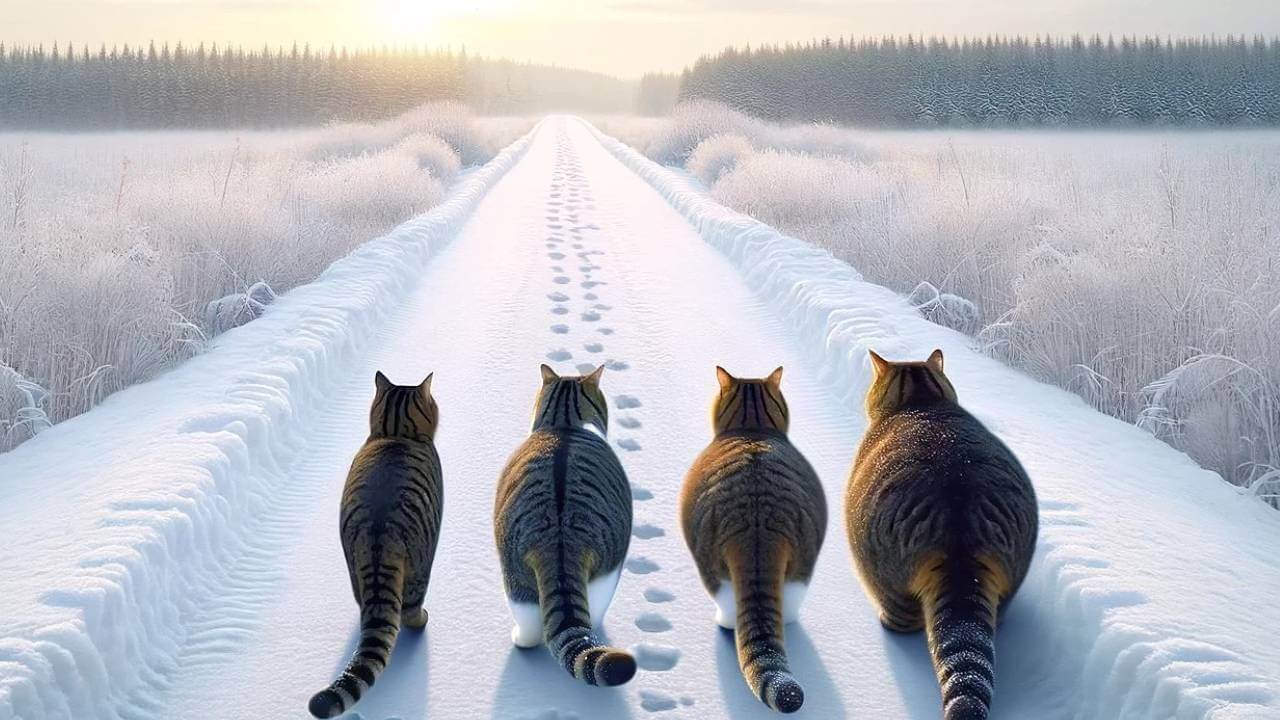
Getting Active and Keeping It Fresh
Maintaining your cat’s health isn’t all about the grub – it’s about keeping them moving and grooving.
- Playtime Galore: Interactive play is the cat’s meow! Use toys that make them pounce, jump, and use their noggins. It’s like a workout and a mental challenge rolled into one.
- Vertical Adventures: Cats love to climb. Get them a cat tree or some shelves to explore – it’s like a jungle gym for your furball.
- Scratching Haven: Scratching posts aren’t just about manicure maintenance. They also help cats stretch out and flex those kitty muscles.
- Stimulating Environment: Mix their playthings and keep their environment interesting to prevent boredom. Happy cats are active cats!
When to Ring the Vet’s Bell
If you’re still scratching your head about your cat’s body condition or noticed sudden changes in their weight, it’s time to get professional advice. Regular vet check-ups are like a kitty wellness spa day – pampering your furball and catching any issues early.
Wrapping It Up
So, the next time you’re wondering, “Is my cat too thin?” remember, it’s not just about the looks – it’s about the whole package. Everything contributes to your kitty’s well-being, from their body condition to their diet and playtime routine. By giving your feline friend the care and attention they deserve, you’re setting them up for a long, happy, and healthy life by your side.

FAQs
Why does my indoor cat seem thinner than outdoor cats?
Indoor cats generally have less space to roam and fewer opportunities to burn calories, which can contribute to a leaner appearance. Engage them in regular play and consider their portion sizes to ensure their health.
My cat’s ribs are visible, but they eat well. Should I be worried?
Visible ribs could indicate your cat is underweight. While appetite might seem good, underlying health issues like parasites or dental problems can affect weight. A vet visit can help rule out any concerns.
Can my cat’s weight loss be due to stress?
Stress can impact a cat’s appetite and weight. Changes in the household, new pets, or medical issues can lead to stress. Creating a calm environment and consulting a vet might help address this.
Are there specific cat breeds that are more prone to being thin?
Some breeds, like Abyssinians and Siamese cats, are naturally leaner due to their genetics. However, even within breeds, individual body shapes vary. Regular monitoring and proper nutrition are key.
What signs indicate my cat’s weight loss might be a health concern?
Rapid or unexplained weight loss, lethargy, changes in behavior, or excessive thirst/urination can signal underlying health problems. Consult a vet if you notice these signs to ensure your cat’s well-being.
Can overfeeding lead to health issues in cats?
Overfeeding can lead to obesity, which increases the risk of diabetes, joint issues, and other health problems. Portion control and a balanced diet are crucial to keeping your cat at a healthy weight.
Are homemade diets a good solution for underweight cats?
Homemade diets can be risky as they might lack essential nutrients. Consult a vet before making dietary changes. Commercial cat foods designed for weight management are often a safer option.


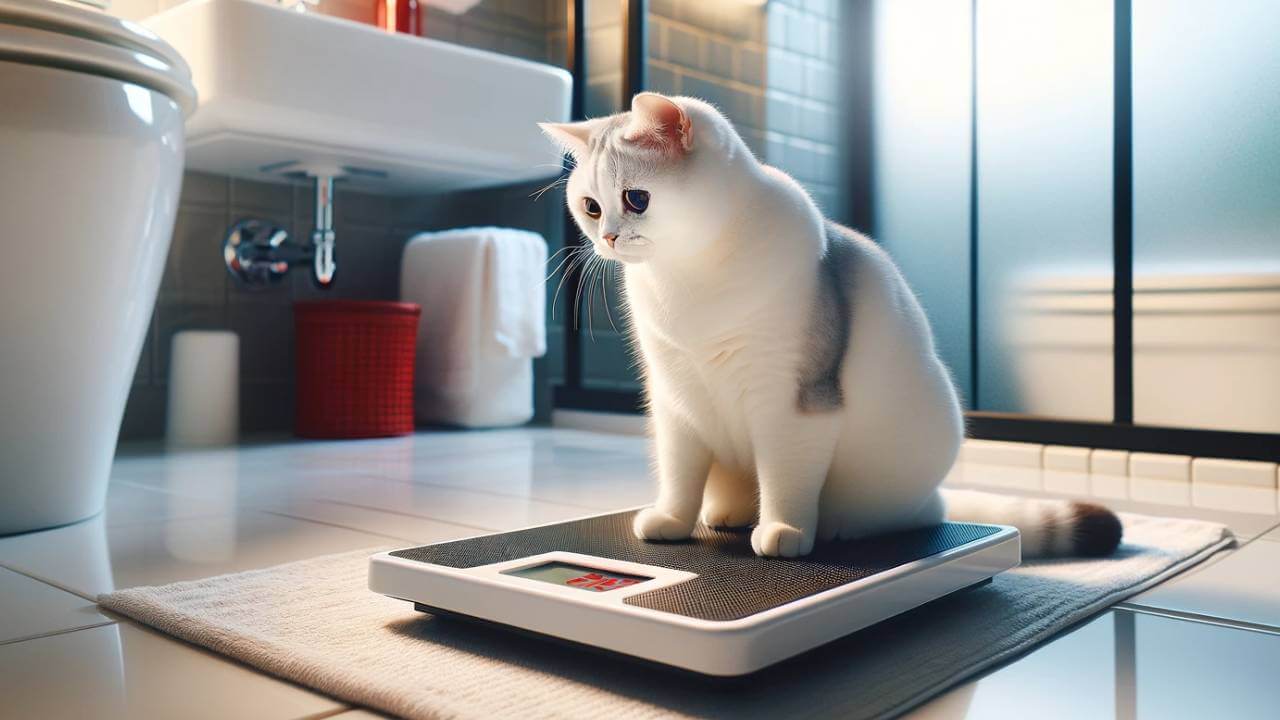
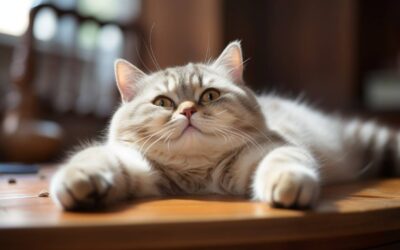
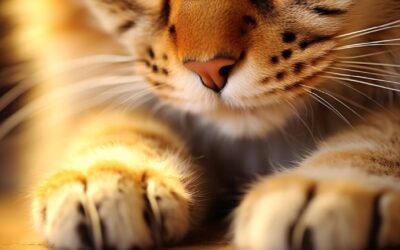
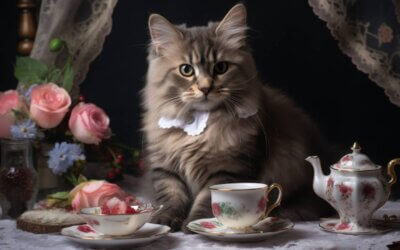
Concerned about my cat’s weight loss lately. Your article shed some light on possible reasons…
I’ll definitely be taking her to the vet to get checked out